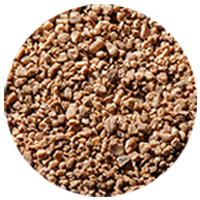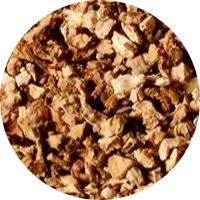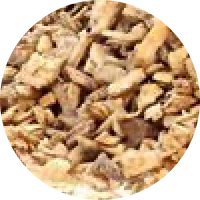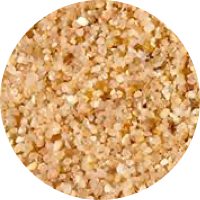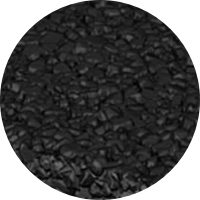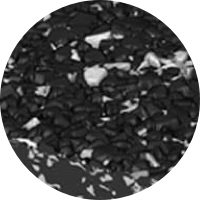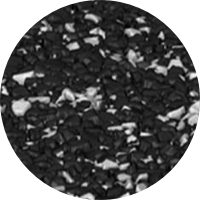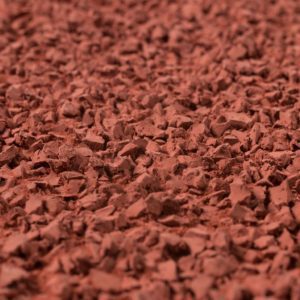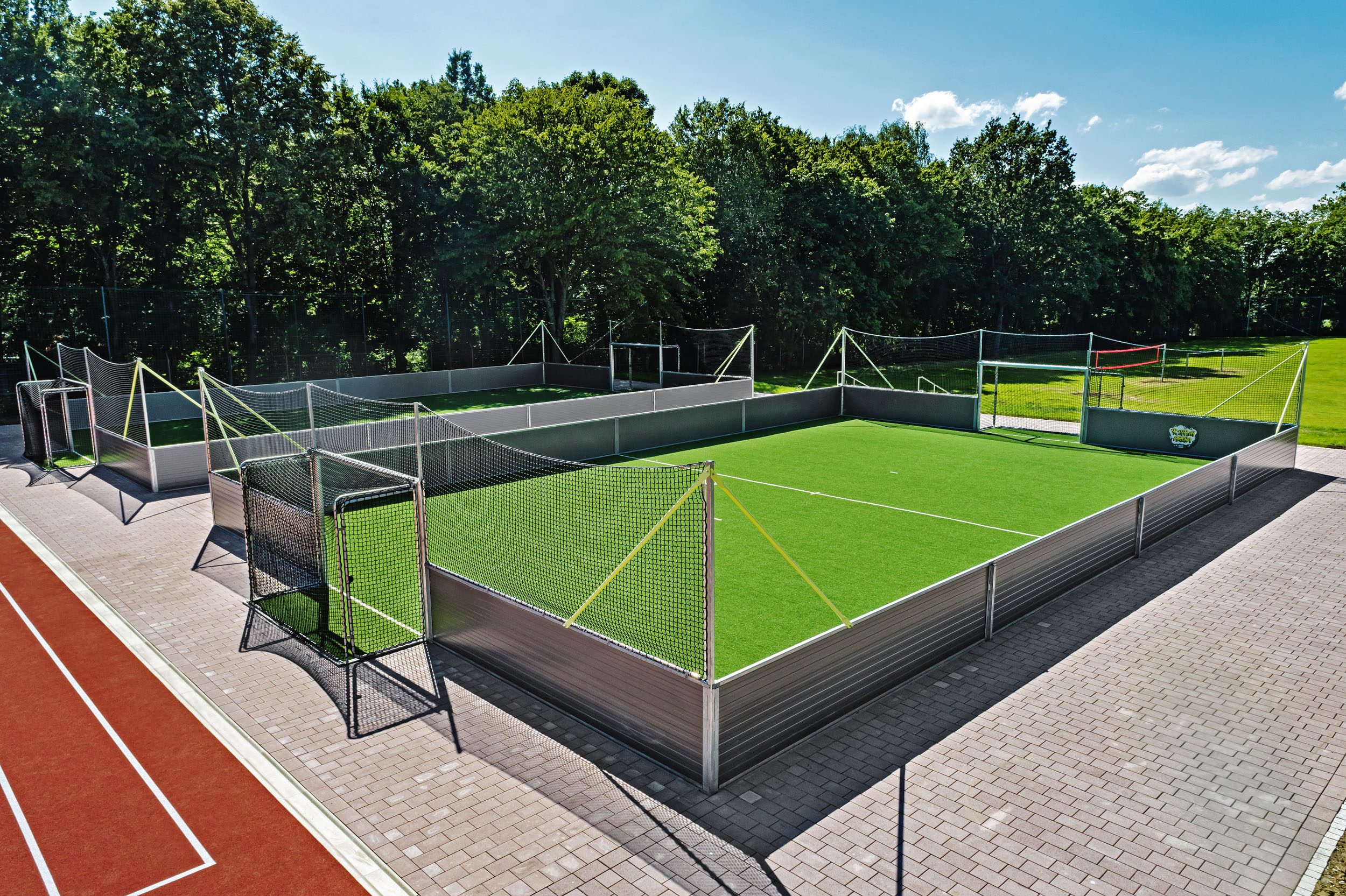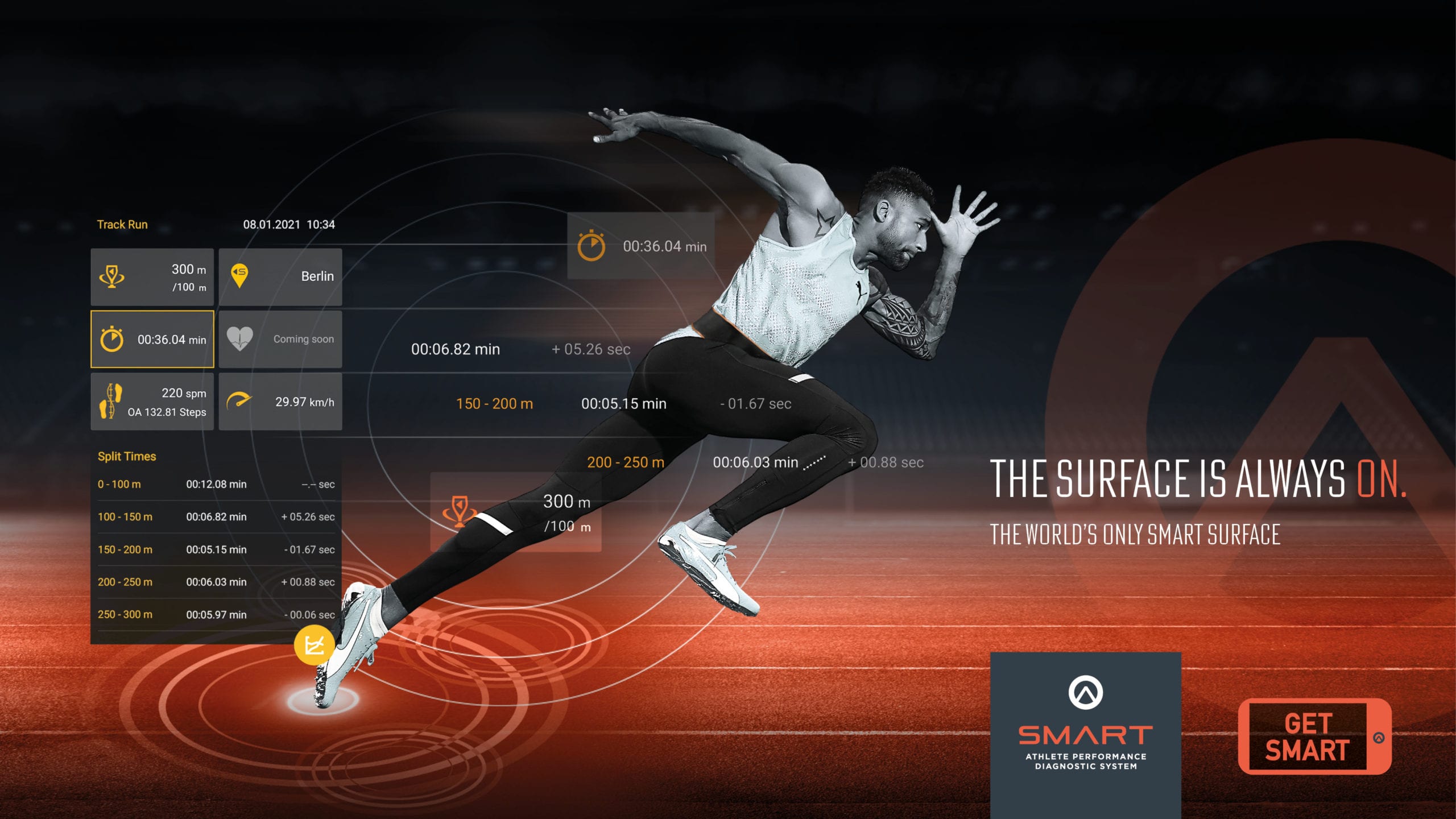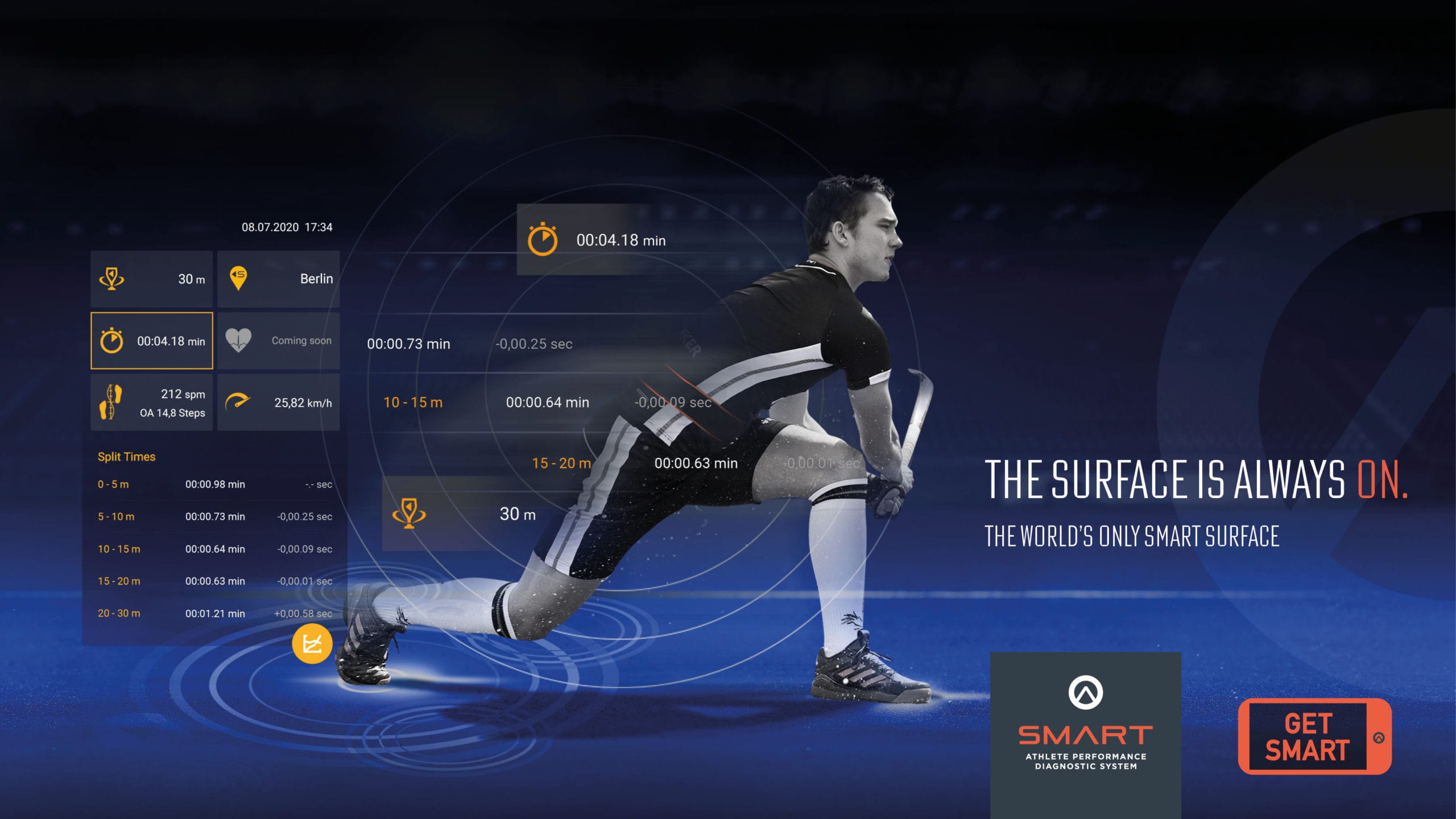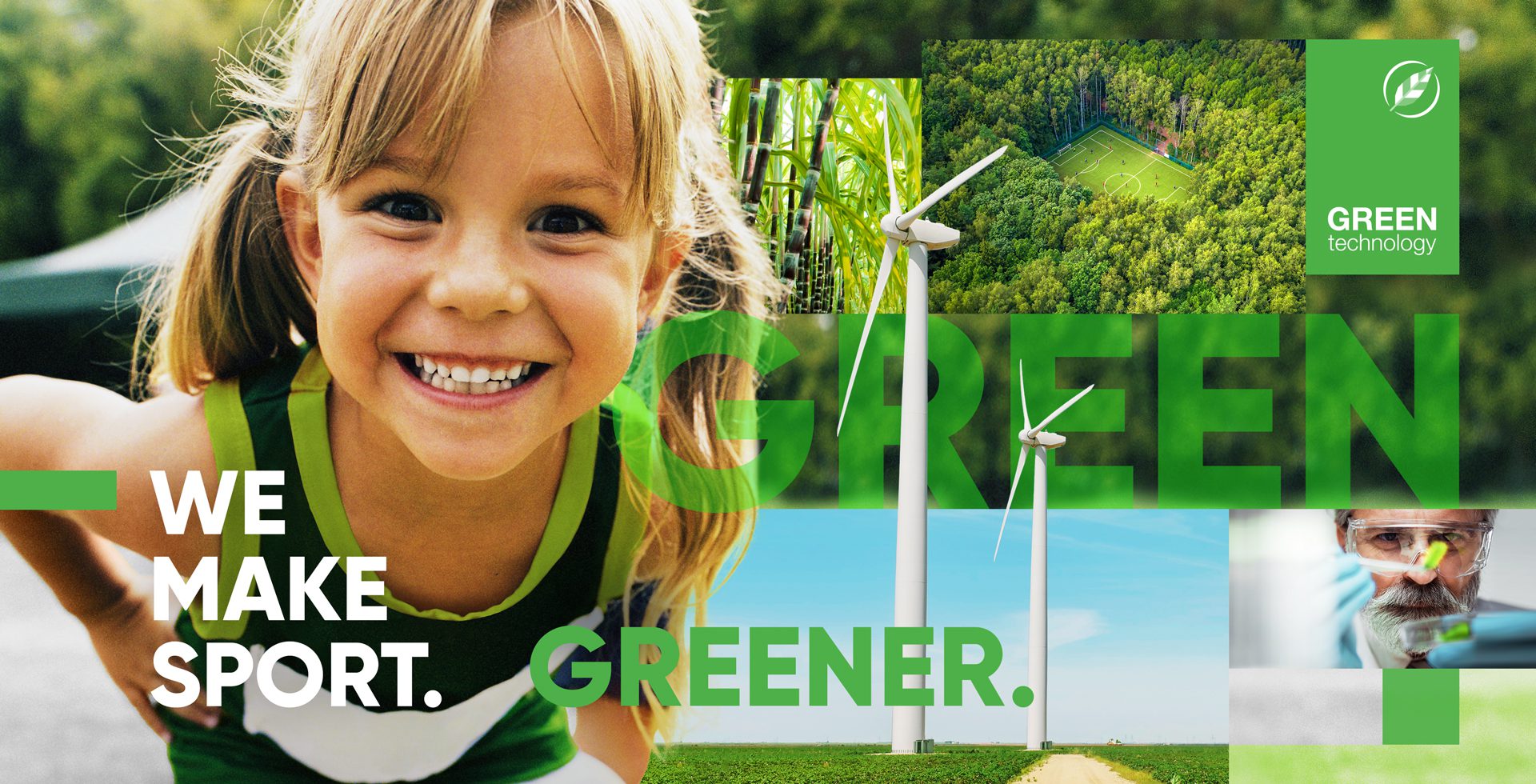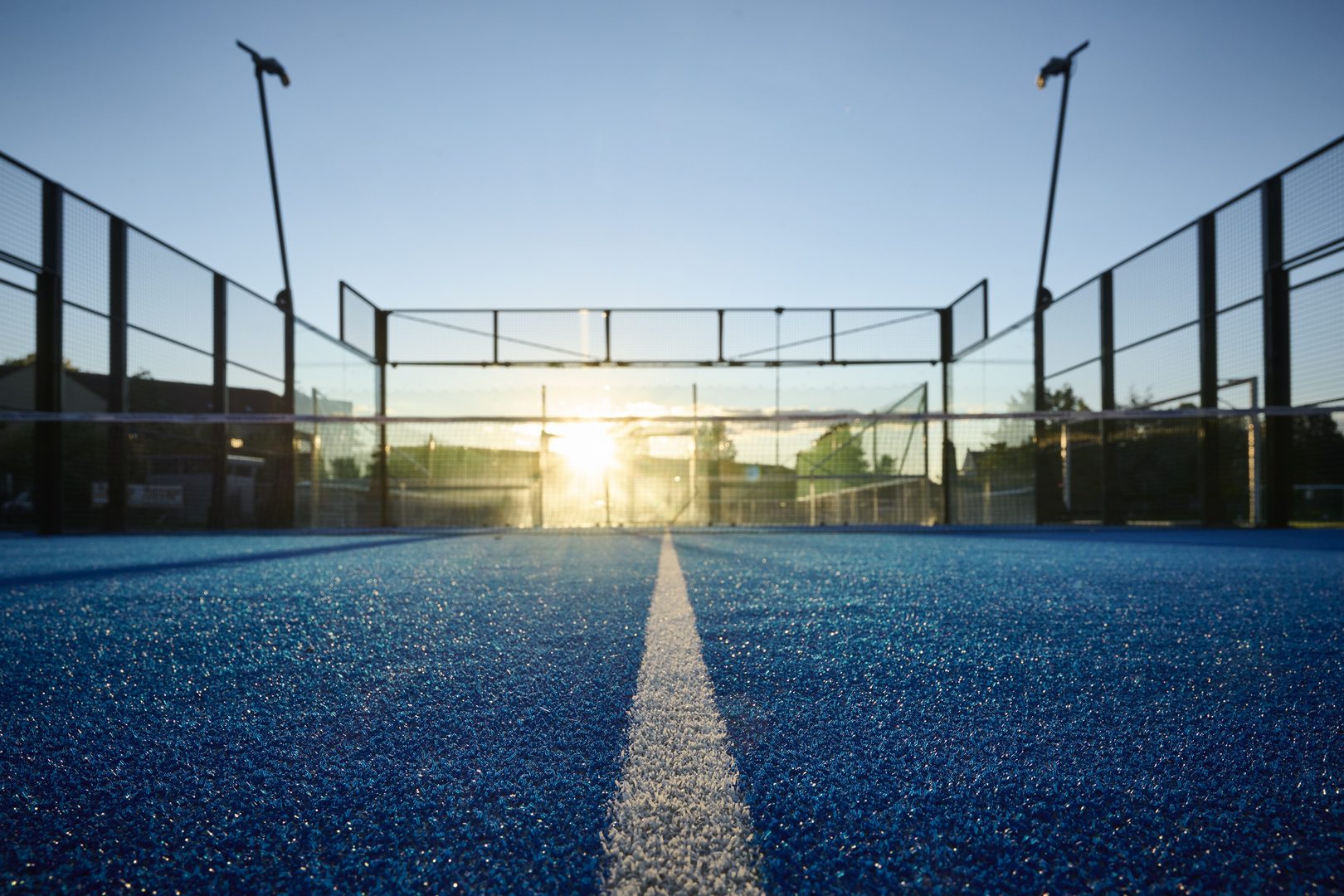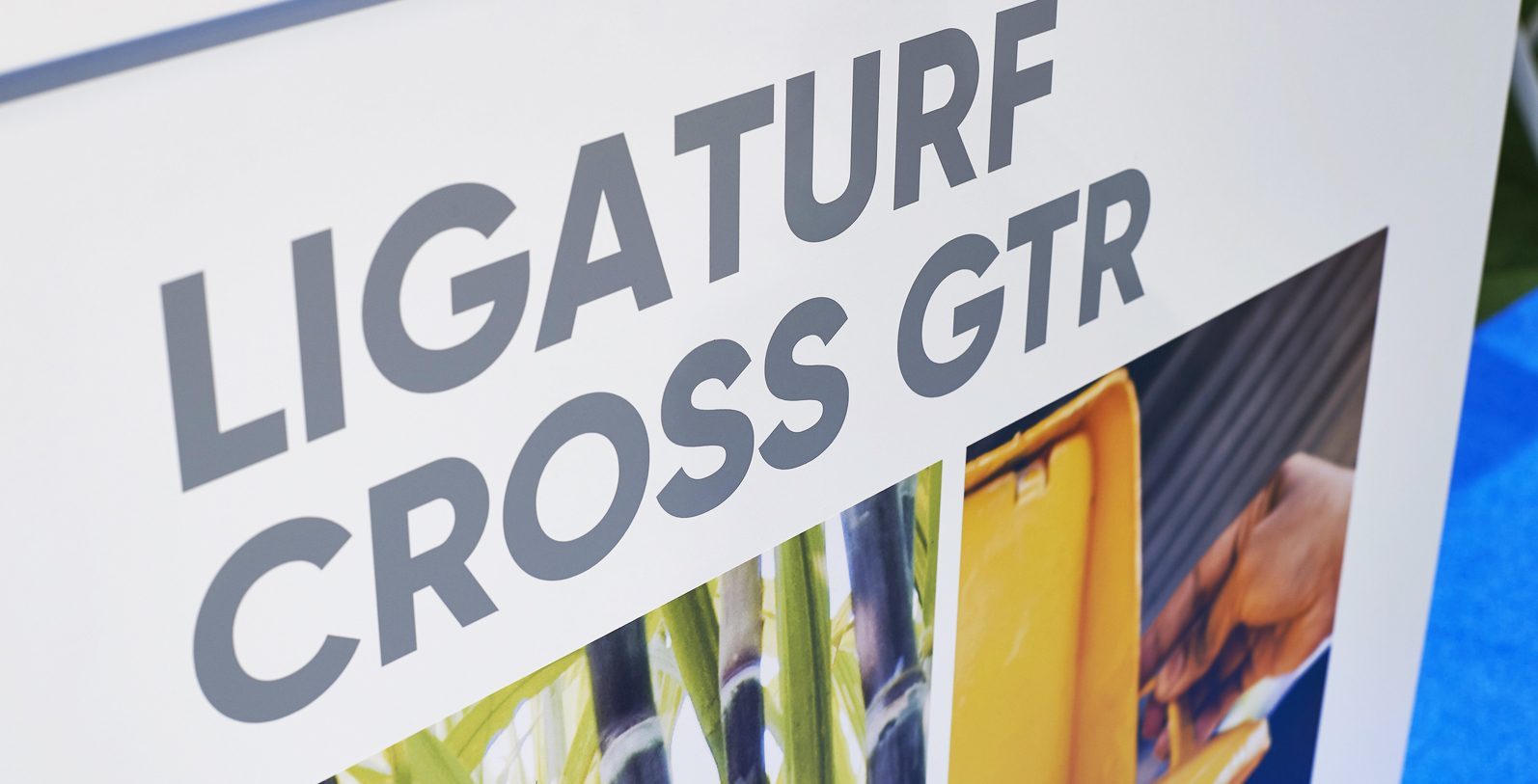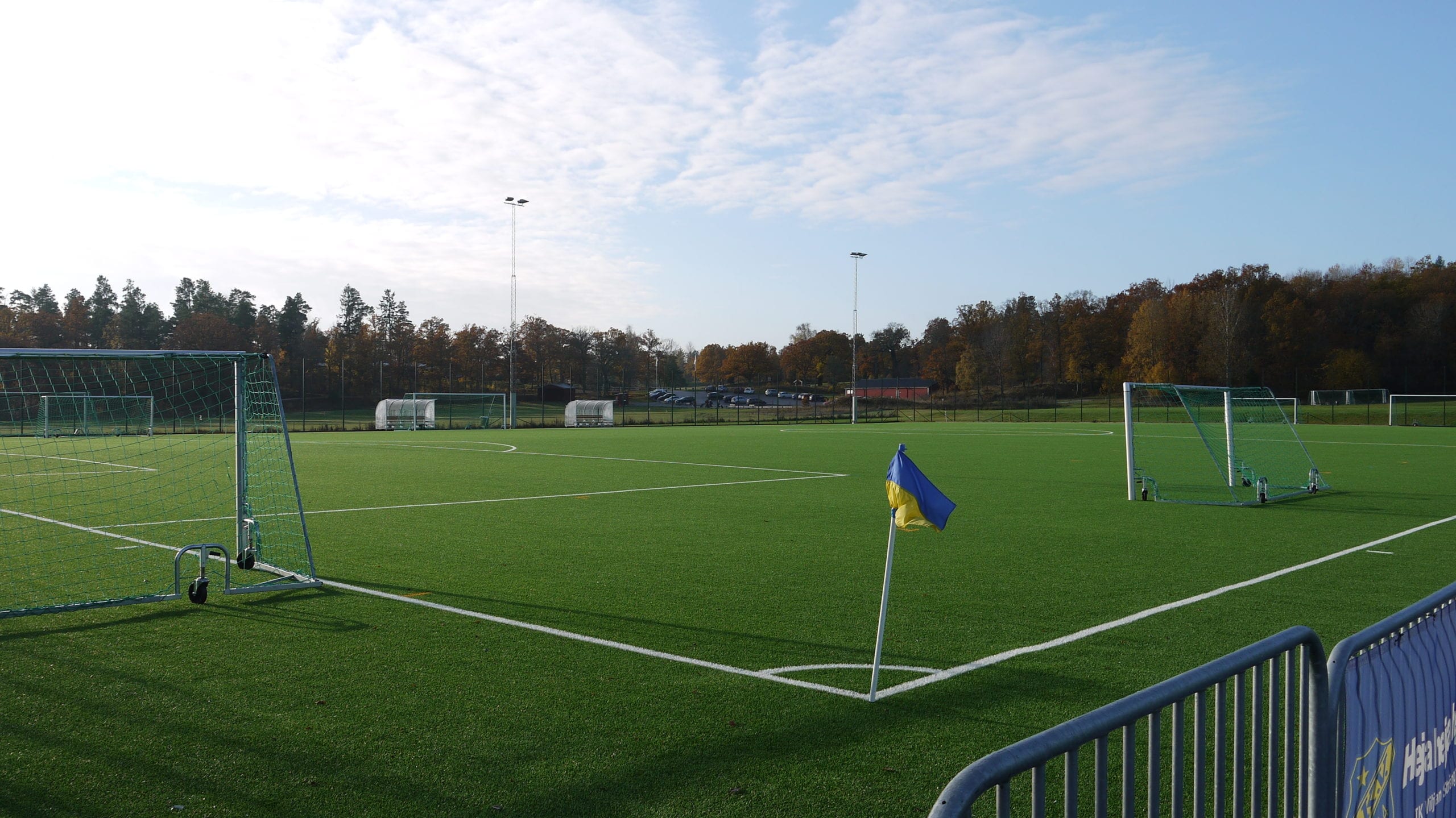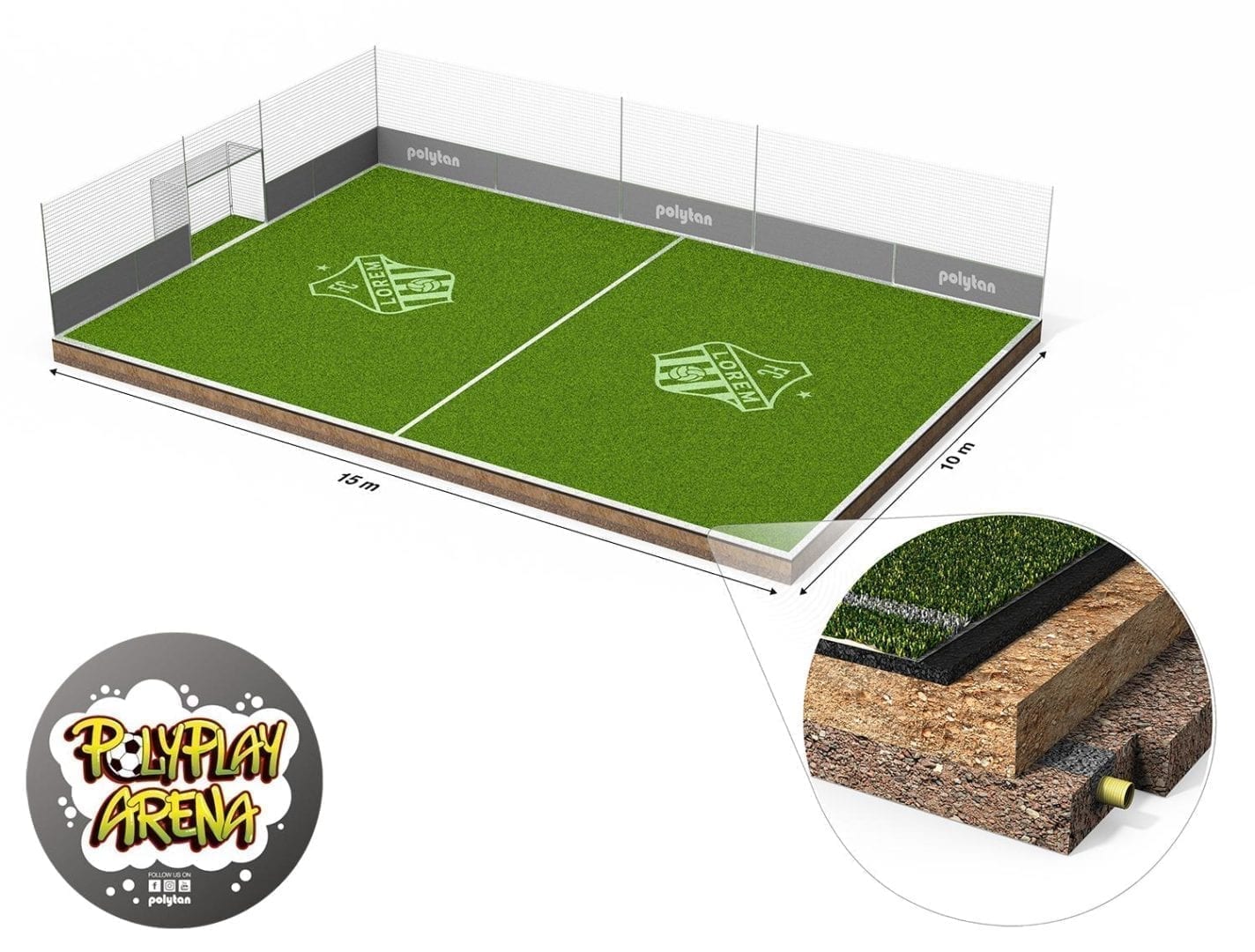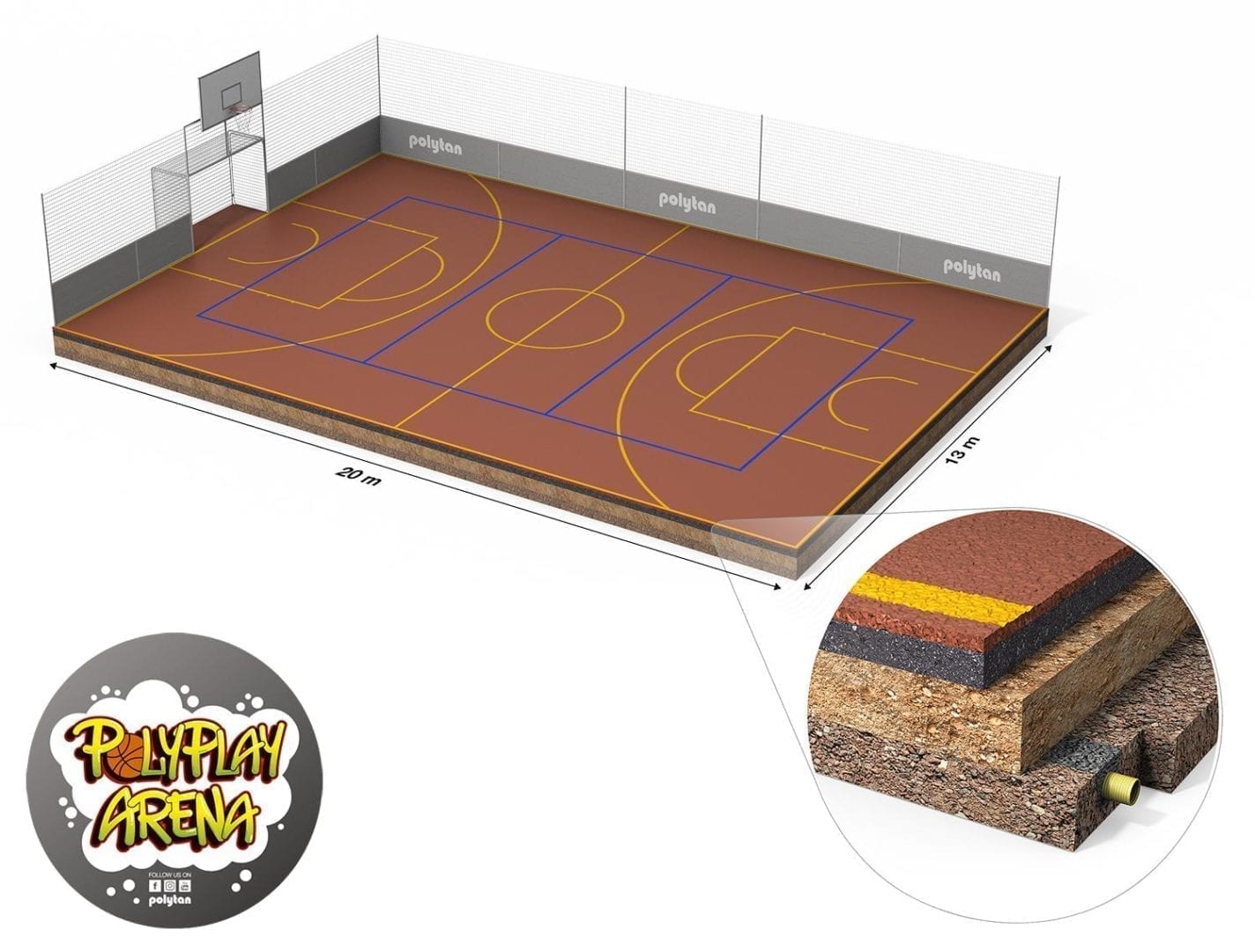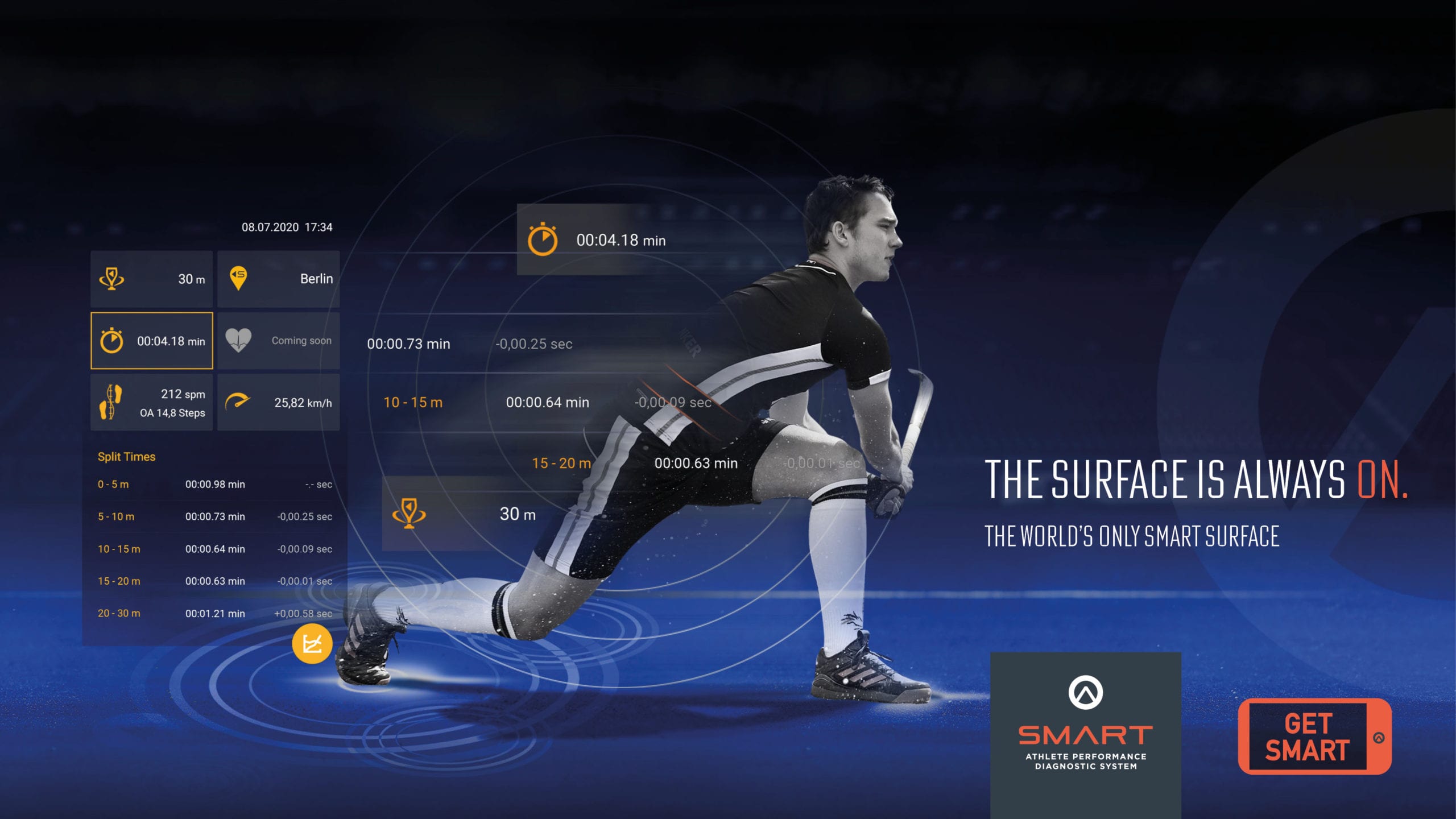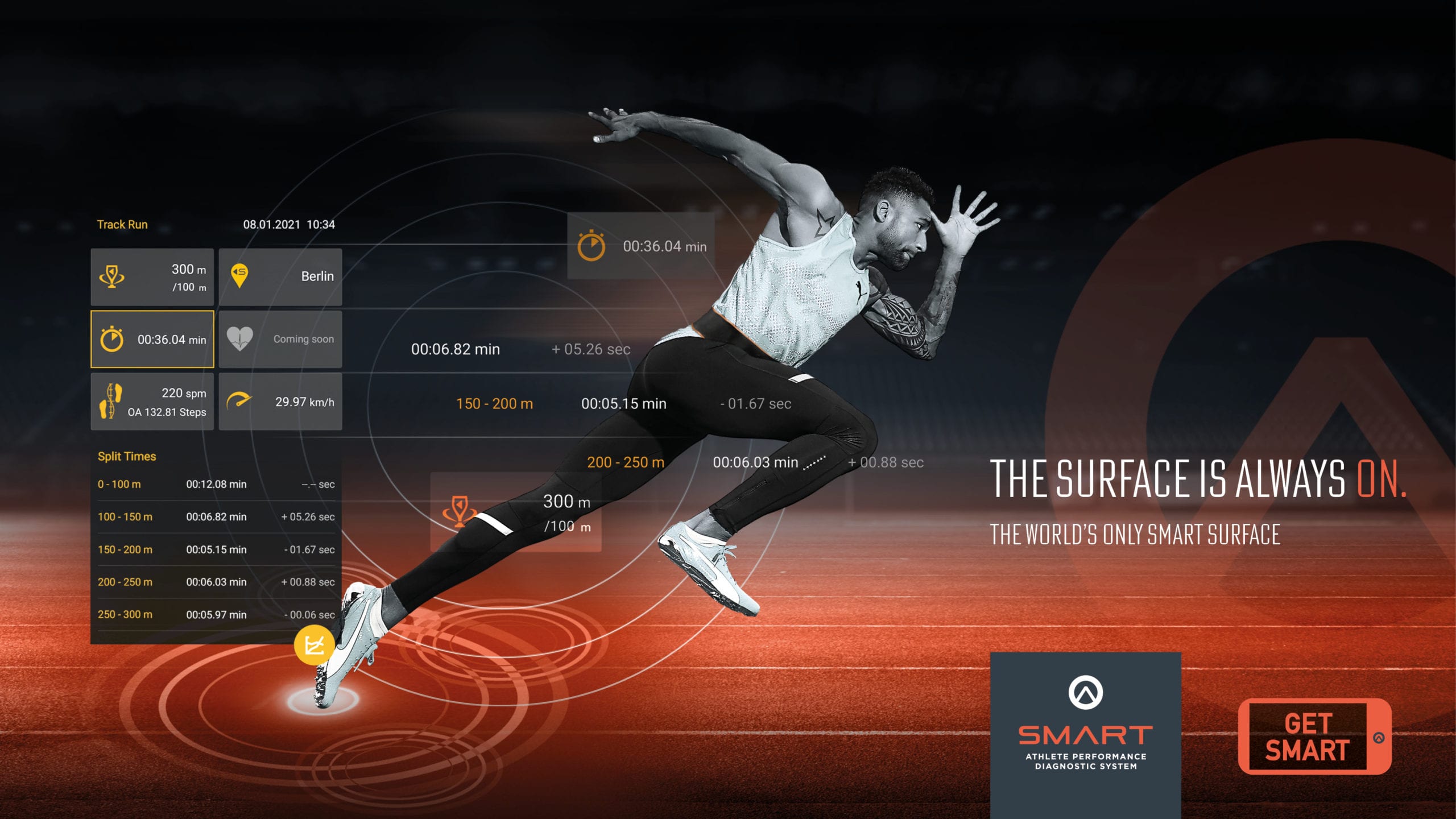In our advertising, we resolutely proclaim: “WE MAKE SPORT. GREENER.” We can use good arguments to support the fact that the tagline is not just a brash slogan. After all, sustainability and environmental compatibility have always been high priorities at Polytan. How are we positioned?
Since 1969, the name “Polytan” has been synonymous with artificial sports surfaces with the highest quality and functionality. Our products are used successfully worldwide in international competitive sports, as well as in leisure, club and school sports. We can produce quality – and have proven that we do so for 50 years. But is our product sustainable? In other words, how “green” is Polytan as a producer of artificial turf systems and synthetic surfaces for sports? In the following blog post, we consider the question while targeting three focal areas: bio-based raw materials, the use of recycled plastics in our new artificial turf systems and the recycling of artificial turf pitches in general. As the material is complex and we want to document our previous efforts in detail, we have divided this blog into three topics
Sustainability in all life cycle phases
In brief: As a responsible full-service provider, of course Polytan pays attention to appropriately and conscientiously using resources in all life cycle phases – from raw materials selection, production, installation and use to care, disposal and recycling.
We admit that we have a decisive advantage. As a system producer with its own research and development, production, sales and installation departments, we have full control – plus the control options for guiding all processes towards sustainability as well. Alongside optimal functional properties, durability and long service life are priorities when it comes to the development and design of our products. These properties have the greatest effect on the sustainability of our products.
In our production processes, we constantly implement improvements to our energy efficiency with regard to lighting, compressed air machines and chilling systems, for example. We have done so systematically and continuously, for many years now. All our products are made in Grefrath, Germany, in a state-of-the-art production facility in the heart of Europe, which means short transport routes to all European markets.
When it comes to use and care, we rely on durable products that are designed for high intensity of use. This aspect is where artificial turf makes the most of its biggest advantages vis-à-vis natural grass: it can be used for over 1,800 hours per year as compared to the 400–800 of natural grass. Due to weather conditions, teams can use natural grass pitches less often and sometimes their use must be completely prohibited. In Central Europe’s temperate climate, an artificial turf pitch can replace around three natural grass pitches, helping to enable natural surfaces to remain untouched in the ecosystem. Artificial turf does not require mowing or fertilising, and continuous watering is also unnecessary. A life cycle assessment created by researchers at the University of Zurich investigated which surfaces are better suited for sports facilities from an environmental perspective. The study examined football pitches with natural grass, hybrid turf, filled and unfilled artificial turf across the entire life cycle. The study’s finding: When taking into account the use/playing time of the different turf types, artificial turf has the best carbon footprint. One reason, among others, is its use time.
In the broad sense, sustainability also includes alternative infills, elastic layers with recycling products, material-reduced PU coatings, playing comfort and player protection.
Three aspects of the comprehensive sustainability cycle have experienced significant improvements at Polytan in recent years and months and accordingly, have made great progress: the use of environmentally friendly raw materials and recycled plastic materials, as well as recycling at the end of the artificial turf service life. We would like to go into detail on these aspects:
(1) Bio-based raw materials as the basis for Polytan’s green technology
In general, we are using ever more renewable raw materials for the production of plastics. In the case of our hockey turf, Poligras Tokyo GT, for example, since 2017 we have used renewable I’m greenTM polyethylene, manufactured by the market leader Braskem in a carbon-neutral process. The reason why: Bio-based materials come from plants such as sugar cane or soy, which remove and store carbon dioxide from the atmosphere while they are growing – depending on the age of the plant, for decades or even centuries.
Sugar cane waste far from the rainforest
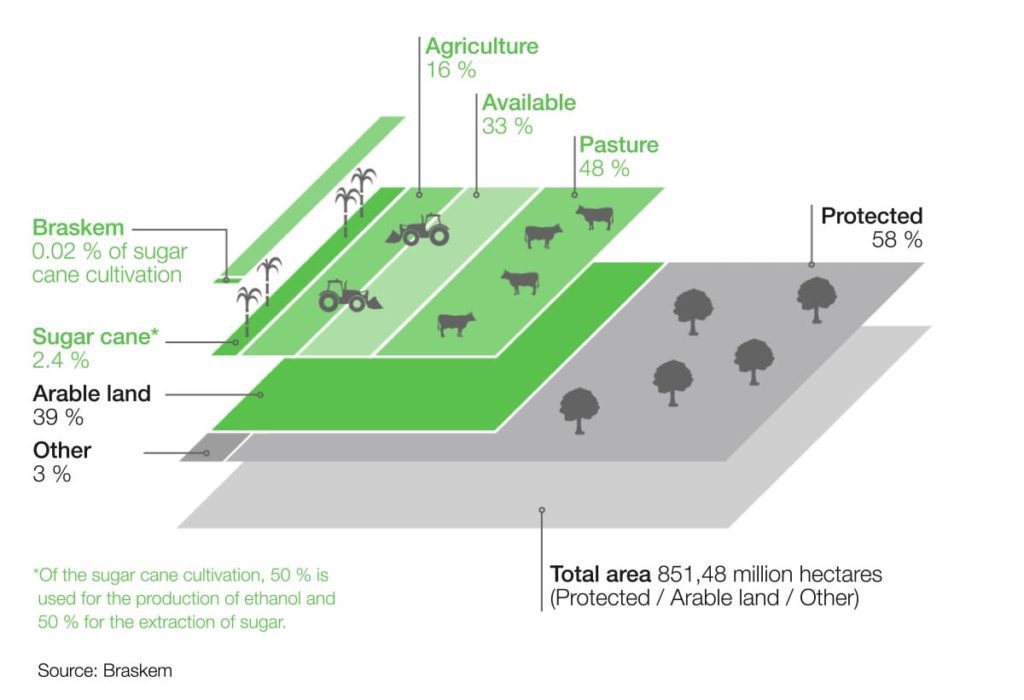
Our focus is on Brazilian sugar cane and we are in a partnership with Braskem, the world’s largest manufacturer of polyethylene from bio-based plastics. To answer what surely is your first question: The growing regions for sugar cane are thousands of kilometres away from the Amazon rainforests and rainforests are not cut down to accommodate the cultivation of sugar cane. Further, sugar cane’s share of Brazil’s area under cultivation is only around 1%.
What is important to us: As we use sugar cane, we do not require any area under cultivation ourselves and do not remove food from the food chain. We do not utilise the plants themselves; the raw material is instead a byproduct of sugar production. The granulate we use for turf production comes from leftovers from the cane sugar harvest that can no longer be used to make sugar. In a nutshell, this means that we transform organic waste into artificial turf.
How do we save carbon?
A total of 1.93 tonnes of carbon dioxide are emitted when one tonne of conventional polyethylene is produced. In the case of bio-based polyethylene, -2.77 tonnes of carbon are emitted. That is a cushion that we can use to balance out the carbon we emit for transport from Brazil to Germany plus our production of yarns and turf systems in order to achieve climate-neutral production. But even after all that, a negative carbon footprint – which is positive for our climate – remains. When the container ship arrives in the port of Rotterdam, our carbon advantage is still around 2.62 tonnes.
And we do not completely use up this positive balance. For the production process in Grefrath, we now use 100% green energy and have optimised the production processes there. Our continuously advanced and constantly improved product design plays an important role here. We consume less material in general, and are focussing on using more of the materials whose base substance already has a better carbon footprint. When taken together, these factors add up to artificial turf from 100% climate-neutral production. As is the case with our LigaTurf Cross GT zero.
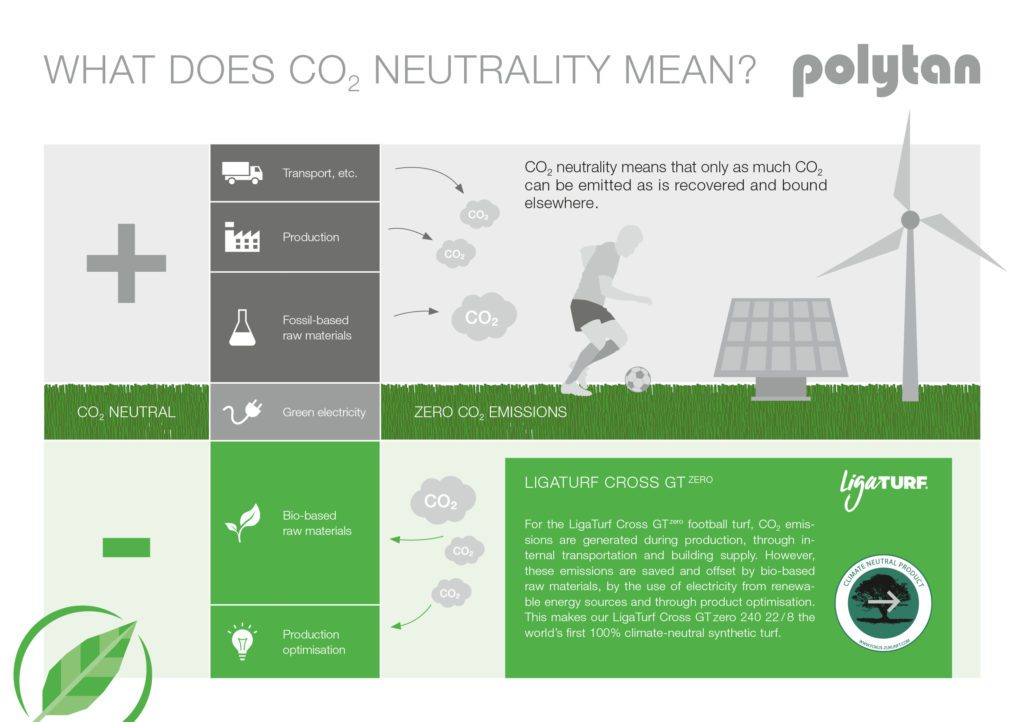
Poligras Tokyo GT – our green lighthouse project
Actually, our efforts around bio-based plastics go further back to the beginning of Poligras Tokyo GT we mentioned at the start – of course “GT” stands for Green Technology. In order to produce it, bio-based polyethylene is combined with conventional polyethylene, melted down and extruded as filament yarn.
By the way, we were also able to improve our carbon footprint with developments above and beyond the turf system itself. Watering helped as well: for the hockey surface, up to one-third less water is consumed. Thanks to our consistent product development, we were also able to increase its playing and use properties for hockey in particular. The comment of participating tournament teams in Tokyo 2021 makes us very proud: “One of the best hockey turfs on which we have ever played.”
LigaTurf Cross GT zero – the world’s first carbon-neutral artificial football turf
When we launched Poligras Tokyo GT in 2017, our Green Technology campaign really gained momentum. Next, Polytan launched the world’s first carbon-neutral artificial turf for football: LigaTurf Cross GT zero. We derived it from our successful LigaTurf Cross product line, which revolutionised football pitches. For the very first time, the needs of municipal or private investors and the requirements of players and users were both satisfied.
Conclusion and outlook:
Until a short time ago, our two surfaces, Poligras Tokyo GT and LigaTurf Cross GT zero, were the fastest, most effective ways for municipalities and sports facilities operators to save or temporarily store greenhouse gases. We are now one step further, as we have added Poligras Platinum GT and LigaTurf Cross GT to our Green Technology series. And of course the advancement and optimisation of the technologies for producing I’m greenTM polyethylene together with Braskem are at the top of our priority list.
This brings the first part of our blog series on sustainability and environmental awareness at Polytan to an end. In the second part, we will tell about integrating recycled plastics into our products and recycling artificial turf systems in general.
